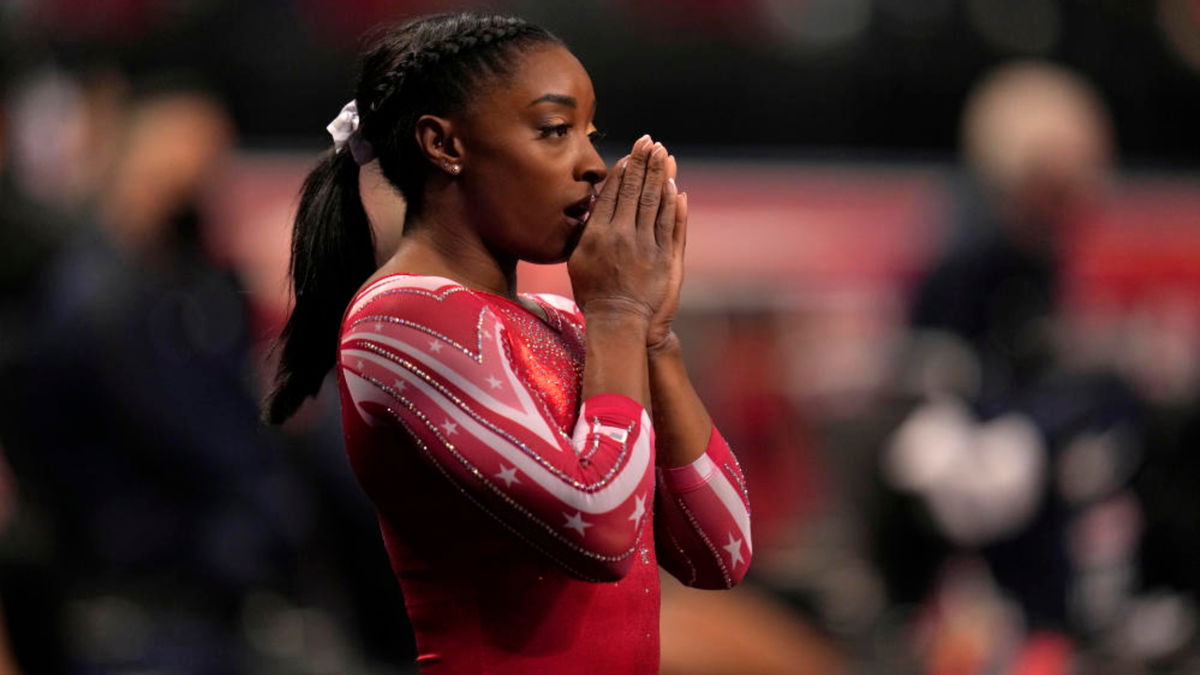

The Olympics are supposed to be the peak of an athlete’s career, but there’s a hidden side many don’t see: the ‘post-Olympic blues’. After stepping off the podium, athletes face a tough question—who are they when the spotlight fades? Even legends like Michael Phelps, with his 28 medals, faced this effect. Even in the 2012 Olympics, Michael Phelps was on the verge of contemplating ending his life.
Watch What’s Trending Now!
Even Simone Biles, with 11 Olympic medals, knows the struggle well. Reaching the top is incredible, but it also comes with a heavy emotional toll that can be hard to handle. And Biles did handle it!
Experts and athletes agree that Olympians are particularly vulnerable to mental health issues, including severe depression, in the post-Olympic period. This is often due to their intense focus on sports, limited outside interests, and struggles with self-worth once the competition ends. The resulting emotional crash, known as post-Olympic depression, can leave athletes feeling lost, empty, and uncertain about their purpose.
ADVERTISEMENT
So, Simone Biles, who recently added four more medals to her collection in Paris, has spoken about this to Vogue, saying, “A lot of athletes, unfortunately, since this is the biggest stage of their life—there’s this thing called post-Olympic depression.” She added, “For two weeks, it’s like we’re rock stars, and then after that, it’s like, okay, carry on with normal life.”
Simone Biles herself has experienced the difficulties of life after the Olympics, which made her take a long break. At the age of 19, she competed in the 2016 Rio Olympics for the first time. During that time she achieved a feat by becoming the first female American gymnast to earn four gold medals in one game. She also made history by winning six world-around titles. A record-breaking achievement in gymnastics. Following this success, she decided to take a break from gymnastics before returning to competition in 2018. Reflecting on her time off, she said, “When I took a break after 2016 [Rio Olympics], I had the time of my life. I was doing anything and everything.”
In 2020, the COVID-19 pandemic disrupted events, but that didn’t stop Simone Biles from taking part in the Tokyo Olympics held in 2021. After being postponed from the previous year amidst high hopes and expectations for her performance, unfortunately, she had to pull out of most competitions due to experiencing “the twisties,” a mental hurdle affecting gymnasts’ spatial awareness during airborne maneuvers.
ADVERTISEMENT
Reflecting on her struggles, Simone Biles shared, “I slept all the time, and it’s basically because sleeping was basically better than offing myself. It was like my way to escape reality. And sleeping was the closest thing to death for me at that point, so I just slept all the time.” However, she made a powerful comeback in 2023, proving she’s still a gymnastics powerhouse.
ADVERTISEMENT

At the 2024 Paris Olympics, Biles continued to dominate, winning four medals. This time, she made sure to prioritize her mental health, saying, “For me, I’ll still be attending my therapy sessions, because I know how important that is for me to be mentally and physically well. So I’ll be ready for my appointments, back to regularly scheduled programming.”
ADVERTISEMENT
After the 2012 Olympics, Michael Phelps openly admitted that his depression had become so overwhelming that he began contemplating taking his own life. By 2016, Phelps did what few athletes at his level had done—he publicly acknowledged his struggle with severe depression and shared how reaching out for professional help had been a lifesaving decision.
In a 2019 tweet, he reflected, “I struggled with anxiety and depression and questioned whether or not I wanted to be alive anymore. It was when I hit this low that I decided to reach out and ask for the help of a licensed therapist. This decision ultimately helped save my life.” As he told ESPN, “You can only get help if you ask for it.” Phelps’ journey highlights the critical difference between sadness and depression. But it’s not just Biles—her teammate Suni Lee has experienced this as well.
ADVERTISEMENT
After Simone Biles, Suni Lee also conquered her demons
Suni Lee, the first Asian-American woman to win the Olympic all-around title in Tokyo 2020, faced significant struggles following her gold medal victory. Despite the achievement at the Tokyo Olympics, Lee experienced what many athletes face: post-gold depression.

USA Today via Reuters
Jun 30, 2024; Minneapolis, Minnesota, USA; Sunisa Lee looks on prior to the U.S. Olympic Team Gymnastics Trials at Target Center. Mandatory Credit: Matt Krohn-USA TODAY Sports
Her transition to college life brought its own set of challenges. As a high-profile Olympian, Lee encountered intense scrutiny and even considered hiring security to attend classes, which led to unwanted attention and stalking. She described feeling isolated, noting, “A lot of the girls [on my team] weren’t the nicest to me. I just really felt like an outcast, almost. They didn’t treat me that well. I just knew that I couldn’t trust them.” Auburn coach Jeff Graba highlighted the team’s effort to navigate the situation with dignity and grace, recognizing the unique challenges that came with Lee’s fame.
ADVERTISEMENT
Competing after winning gold is a daunting task, and Lee felt immense pressure to live up to high expectations. She struggled with the burden of needing to deliver flawless performances; as Jess Graba pointed out, “Everybody just thinks since you’re the gold medalist, you never make mistakes.” This pressure is common among Olympic champions, many of whom find the aftermath challenging. With that being, Lee showed she was still a top performer when she made it through the Paris Olympics, alongside Simone Biles and proved her incredible talent.
Top Stories
Tom Brady Makes Career Announcement for Vegas as Pete Carroll Addresses Losing Raiders Locker Room

Cam Newton Makes NFL Return Conditions Clear to 32 Teams as Panthers Legend Confirms Retirement Stance

J. J. McCarthy Awaits Punishment From Vikings After Rejecting Kevin O’Connell’s Instructions

$250M Michigan Donor Promises to Get Kenny Dillingham if Green Lit to Pursue ASU HC Himself

Dale Jr. Warns of Deeper Issues as Joe Gibbs Parts Ways With Decade-Long Executive

Ex-Georgia Gymnastics Star Opens Up On Facing Mistreatment Months After NCAA Program Switch

ADVERTISEMENT
ADVERTISEMENT
ADVERTISEMENT

